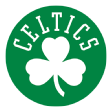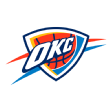Where do Westgate's over-under lines for the 2017-18 NBA season, released Tuesday afternoon, differ most from projections using ESPN's real plus-minus (RPM)?
For the most part, RPM and Westgate are on the same page, with the lines for 22 of the 30 teams coming in within three games of RPM's projected win totals -- now adjusted from the version posted earlier this month to reflect the schedule release and subsequent roster changes. A full third of the teams in the league (10) have lines within one game of their projection.
Still, as usual, there are some disagreements between our statistical projections and Westgate's take on conventional wisdom. Let's take a look at the biggest ones.

Boston Celtics
Line: 56.5 wins
RPM projection: 44.8 wins
Difference: 11.7 wins
Even before last week's trade for Kyrie Irving, the Celtics would have ranked near the top of this list after sacrificing depth to add Gordon Hayward in free agency. Because the Celtics gave up a pair of starters (All-Star Isaiah Thomas and Jae Crowder) to get Irving, their RPM projection actually dropped after the trade, giving them the largest differential between their projection and their Westgate line for any team in the NBA.
Note that Boston may still hold the top spot even if the trade for Irving is called off because of Thomas' hip injury. That outcome would suggest Thomas could miss time during the regular season. He's currently projected to play 77 games.

Philadelphia 76ers
Line: 42.5 wins
RPM projection: 33.5 wins
Difference: 9.0 wins
Westgate is calling for a 14.5-win improvement by the Sixers, a larger jump than all but one team made last year: Philadelphia itself, which went from 10 wins in 2015-16 to 28. It's understandable why the line for the Sixers is so optimistic. Philadelphia adds a pair of No. 1 picks in Markelle Fultz and Ben Simmons, as well as veteran free agents JJ Redick and Amir Johnson.
As I noted with the RPM projections, Fultz and Simmons aren't forecast to be above-average contributors right away, consistent with the track record of top picks taking time to adjust to the league. I'd take the over on RPM's 33.5-win projection, but I still think the 76ers getting to .500 this year is less than a 50-50 proposition.

Chicago Bulls
Line: 21.5 wins
RPM projection: 29.1 wins
Difference: 7.6 wins
Projecting the league's worst teams is always a tricky exercise because it's unclear just how motivated they'll be to win games down the stretch. After trading Jimmy Butler, the Bulls fall into that category. RPM has them with the league's third-lowest projection, ahead of the Sacramento Kings and Atlanta Hawks, while Westgate's over-under for Chicago is the lowest on the board.
Westgate may be factoring in a possible buyout for veteran guard Dwyane Wade, which wouldn't actually change the Bulls' RPM projection much. Wade's minus-1.5 projected RPM is worse than younger backups Justin Holiday (minus-0.9) and Denzel Valentine (minus-1.2).

Golden State Warriors
Warriors Line: 67.5 wins
RPM projection: 62.4 wins
Difference: 5.1 wins
As SI.com's Ben Golliver highlighted when I joined him on the Open Floor podcast to discuss the RPM projections, 62 wins feels awfully low for the Warriors after they won 67 games while integrating Kevin Durant in the lineup (and dealing with his absence due to injury) last season. Shaun Livingston's poor RPM projection (minus-2.0 points per 100 possessions) is a key culprit, though Golden State overcame Livingston rating that poorly by RPM in 2016-17.
It's worth noting that, given the conservative nature of projections, the Warriors' 62.4-win projection is actually still quite good -- the fourth-best over the nine years for which I've compiled them, trailing Golden State last year (66.7), the 2010-11 Miami Heat (64.9) and the 2009-10 Cleveland Cavaliers (63.4). The 2016-17 Warriors were the only team of those three to reach their projection.

LA Clippers
Line: 43.5 wins
RPM projection: 48.1 wins
Difference: 4.6 wins
The Clippers have become a favorite of statistical projections. Andrew Johnson's projections have them even higher at 51.6 wins. Of course, more so for the Clippers than most teams, health is a crucial factor. If Blake Griffin indeed misses the start of the season while rehabbing the plantar plate injury he suffered in the playoffs, LA's projection could dip closer to Westgate's 43.5 wins.

Toronto Raptors
Line: 48.5 wins
RPM projection: 44.8 wins
Difference: 3.7 wins
When the Raptors' projection came in lower than expected, some fans in Toronto noted their team has tended to outperform its projection in the past. They were right: the Raptors have beaten their RPM projection each of the past four years by an average of 6.1 wins -- larger than the difference between their projection and the Westgate line.

Memphis Grizzlies
Line: 37.5 wins
RPM projection: 33.8 wins
Difference: 3.7 wins
Conversely, Toronto's one-time expansion brethren don't really have a long track record of exceeding RPM projections. While the Grizzlies beat last year's 39.3-win projection by nearly four wins, over the past four seasons combined they've come up slightly short of what RPM projected. (That partially owes to Memphis' injury-plagued 2015-16 season, which no system could foresee.)
Looking at other projections also doesn't offer much more hope for the Grizzlies. Johnson's model has them at a lowly 29.6 wins, sixth-worst in the NBA.

OKC Thunder
Line: 51.5 wins
RPM projection: 48.4 wins
Difference: 3.1 wins
At barely three wins, this qualifies as a modest disagreement of opinion between the RPM projections and Westgate's line. Either way, the Thunder should be in the middle of the Western Conference playoff race. I suspect the discrepancy that does exist stems largely from the fact that Oklahoma City won four more games in 2016-17 than would be typical for a team with a plus-0.8 differential.
As compared to the 47 games the Thunder actually won, finishing around 48 or 49 after adding Paul George would be surprising and disappointing. If you start with Oklahoma City as performing like a 43-win team, that level of improvement is far more reasonable.
